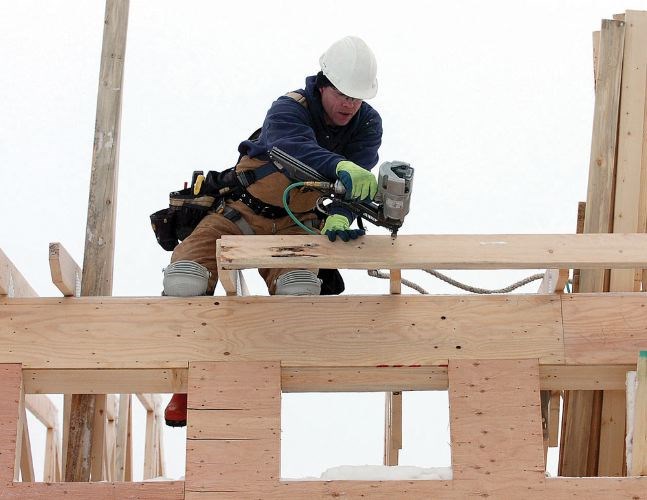Prospective home buyers have a new hurdle to clear in the form of a "stress test" for uninsured mortgages but a local mortgage broker is predicting it will only slow the sales of higher-end homes.
As of January 1, even those who can pony up a 20-per-cent down payment - the minimum required to avoid paying a premium for mortgage insurance - must show they have some wiggle room should interest rates rise.
They must have the wherewithal to afford the greater of two percentage points above the contractual mortgage rate or the five-year benchmark rate published by the Bank of Canada.
Despite the new rules, real estate agents should still have little trouble selling homes in the $200,000 to $400,000 range, Bob Quinlan said Tuesday.
"In Prince George I don't think we're going to have of an effect," he said. "We've got some good diversity within our economy and the prices are still well within the range that the stress test is not going to affect us very much.
"You're going to see more pressure on the higher end homes. I think you're going to see less speculation on the $500,000-$600,000 homes. You're going to see more interest in the custom homes that people are buying."
He said it could prompt some to get an insured mortgage even if they can afford a 20-per-cent down payment because the difference is less than the additional cost of payments on an uninsured mortgage.
"If you're paying less than 20 per cent down, in other words you're paying for a CMHC-insured mortgage, the bank will offer you 2.99 per cent," Quinlan said. "But if you're putting 20 per cent down or more and you're not paying that CMHC fee, then the bank is going to charge you a rate of say 3.09 because you're a little higher risk.
"So you could still put down 20 per cent or more and ask for CMHC insurance which is less than what the difference is in the interest you're going to pay over the next five years on your mortgage."
Quinlan, who is a B.C. Northern Real Estate Board director, applauds the new rule, which the federal Office of the Superintendent of Financial Institutions announced in October.
"I think it's a good move because people are like electricity and will take the path of least resistance," he said. "I see application after application where people will take what's available to them and then they'll go to the car lot and get seven years no interest and they'll get a big TV at The Brick and that percentage of the market is enough to make some shifts and cause some foreclosures down the road."
Foreclosures hurt those who are living up to their mortgage payment obligations, not just those who have to give up their houses, according to Quinlan, because a foreclosure will affect the value of neighbouring homes.
About 30 per cent of mortgages in Canada are insured. The federal Office of the Superintendent of Financial Institutions announced the changes in October.



